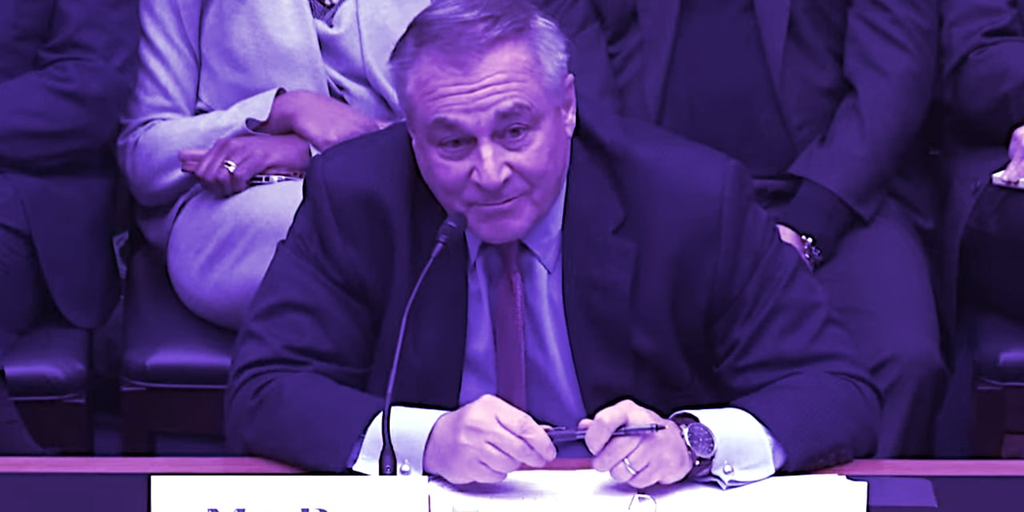
FTX Proposes Plan To Return 90% Of Customer Funds

Embattled cryptocurrency exchange FTX has put forth an amended proposal that aims to return up to 90 per cent of creditor holdings.
The proposal, set to be formally filed by the debtors' group overseeing the bankruptcy process, is scheduled for review by the U.S. Bankruptcy Court by December 16, 2023.
FTX’s Proposal For Creditors
Under the proposed plan, missing customer assets are categorised into three pools based on the circumstances at the onset of the Chapter 11 cases. These include assets segregated for FTX.com customers, assets for FTX.US customers, and a "General Pool" encompassing other assets. Customers with a preference settlement amount below $250,000 are offered the opportunity to accept the settlement without any reduction in claim or payment.
The proposal also introduces a "Shortfall Claim" against the general pool, corresponding to the estimated value of assets missing at the time of FTX's collapse. The estimated shortfall claims are staggering, with nearly $9 billion for FTX.com and $166 million for FTX.US. However, the document acknowledges potential complications in recoveries, citing factors like taxes, government claims, and token price fluctuations.
FTX CEO's Perspective
FTX CEO John J. Ray III views the proposal as a significant milestone in the case, emphasising its potential to mitigate what could have been a severe financial blow for customers. The announcement signals a strategic move by FTX to address concerns and complexities surrounding the bankruptcy, reflecting a commitment to resolving the situation.
Insights from the Court Proceedings
The proposal's unveiling coincided with the eleventh day of the trial of FTX founder Sam Bankman-Fried (SBF), who is facing criminal charges. The trial featured crucial testimonies from accounting experts, including Professor Peter Easton and FBI accountant Paige Owens.
Professor Easton's detailed analysis revealed the extent of misappropriation of FTX customer and investor funds by Alameda Research, FTX's sister hedge fund. The analysis exposed substantial deficits in Alameda's accounts despite continuous payouts, diverting funds for investments, property acquisitions, political contributions, and charity foundations. Notably, a significant portion of third-party loans serviced by Alameda used FTX customer funds, raising concerns about the mingling of resources.
FBI accountant Paige Owens shed light on extensive political donations associated with SBF and others. The prosecution presented evidence of transfers totaling $47 million from Alameda's Prime Trust account to SBF's personal account, with a significant portion directed towards political action committees. The trial unveiled connections between FTX customer funds and political contributions, adding complexity to the allegations.
More news about ftx 반환
- Feb 10, 2024 11:04 pm플레이댑 "해커에 자산 반환 보상 제안"3100만 달러 상당의 해킹 피해를 입은 블록체인 게임 플랫폼 플레이댑(PLA)이 X를 통해 "온체인 메시지로 해커에게 탈취한 모든 자산의 즉시 반환에 대한 보상을 제안했다"고 밝혔다.
- Feb 06, 2024 8:15 pm외신 "제네시스, 고객 청구액 초과 반환 계획"언폴디드에 따르면, 파산한 암호화폐 대출업체인 제네시스(Genesis)가 반환하는 액수가 고객 청구액을 넘어선다고 모회사 DCG(디지털커런시그룹)이 밝혔다.
- Nov 24, 2023 2:21 pm카이버스왑, 해커에 탈취 자금 90% 반환 요청이더스캔에 따르면 카이버스왑 팀이 해커에게 11월 25일 15시(한국시간) 전까지 탈취 자금의 90%를 반환한다면 나머지 10%는 포상금 개념으로 지급하겠다고 온체인 메시지를 남겼다. 앞서 카이버스왑에서는 4700만 달러 상당 암호화폐가 도난당한 바 있다.
- Jul 25, 2023 12:16 pmCrypto in I-T returns? Here are the forms you need to knowIf you have dabbled in cryptocurrency, you will have to make detailed disclosures in the newly-introduced VDA schedule while filing returns before July 31, 2023. In crypto, setting off of losses against capital gains elsewhere — be it in mutual funds or other crypto assets — is not allowed.
- Apr 06, 2023 8:14 pmReuters: FTX philanthropy unit invested more than $13 million in universities before closing, some academics fear being ordered to return grantsAccording to Reuters, the closure of FTX’s philanthropic arm and the FTX Future Fund left academics and researchers who received funding early on without the promised money, while other researchers feared being ordered to return their grants. The charity has pledged to donate $1 billion to research scholars at prestigious universities by 2022, and doctoral student Korbinian Kettnaker said he was forced to abandon his studies in the philosophy of computer science at the University of Cambridge in the United Kingdom after his funding from FTX fell through. According to an archived snapshot of its now-deleted website, the fund had spent $132 million in 262 grants and investments as of June 2022, and further calculations based on those announcements show that university-affiliated research programs have received more than $13 million.
- Dec 29, 2022 7:13 pmFTX Japan plans to return client assets in mid-February next yearFTX Japan announced that it plans to return customer assets in mid-February next year, and eligible users will receive an email in mid-January, providing information on opening a Liquid Japan account, etc. FTX Japan indicated that the schedule may change depending on the progress of the external security audit. Foresight News previously reported that on December 23, FTX Japan plans to start internal testing of the deposit and withdrawal process in a sandbox environment in the last week of December, and announce the timetable for resuming withdrawals at the end of the month.
- Dec 21, 2022 11:13 amUS Democratic Senate Majority PAC Plans to Return $3M Donated by FTX ExecutivesThe U.S. Democratic Senate majority super political action committee (PAC) plans to return a $3 million donation from former FTX CEO Sam Bankman-Fried and former FTX engineering chief Nishad Singh, CNBC reported. In the 2022 election cycle, the PAC received $2 million from Nishad Singh and $1 million from the SBF, according to Federal Election Commission records. Foresight News previously reported that FTX debtors demanded to recover the money they voluntarily paid to third parties before its bankruptcy. If they did not return, FTX debtors intended to file a lawsuit in the bankruptcy court.
- Dec 20, 2022 7:38 amFTX Debtors Announce Procedure for Voluntary Return of Funds to Avoid LitigationFTX Debtors publishes procedures for the voluntary return of funds in which certain recipients of donations or other payments made at the direction of SBF, other officers or principals have approached FTX Debtors and have been directed to return such funds to FTX Debtors, and FTX Debtors have also We are working with these recipients to ensure that these payments are promptly returned to FTX for the benefit of customers and creditors. If such payments are not returned voluntarily, FTX Debtors intends to file an action in bankruptcy court for the return of such payments with interest accruing from the date of commencement of any action.
- Nov 30, 2022 10:05 amUS Governor Candidate Beto O'Rourke Returns $1M Donation to SBF Before FTX BankruptcyFormer U.S. congressman and gubernatorial candidate Beto O'Rourke returned a $1 million donation to SBF, The Block reported. SBF donated $1 million to O'Rourke's campaign on Oct. 11, which O'Rourke's campaign claims he never asked for, and returned the cash on Nov. 4 before FTX declared bankruptcy. O'Rourke also received a $100,000 donation from another FTX executive, Nishad Singh, and the campaign did not say whether it would return Nishad Singh's money.
- Oct 22, 2022 11:26 amOlympusDAO hacker returns stolen funds to DAOAccording to PeckShield, the OlympusDAO hacker has returned the stolen funds to the DAO. OlympusDAO consultants stated that although the vulnerability is real, it is not the OlympusDAO contract, and the affected contract is written by the Bond protocol to test the launch of OHM bonds. Previously, the redeem() function in OlympusDAO's related BondFixedExpiryTeller contract caused a loss of about $292,000 due to its inability to correctly verify the input.




















